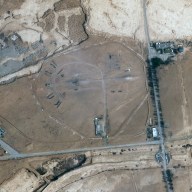Physical and psychological torment might not sound like an amusing tourist activity, but here at the Karosta prison, in a creepy little town outside Latvia’s capital city, people pay to be treated like inmates.
I find myself in this former military prison (used as recently as 1997) trying to mentally prepare for an overnight stay. In this reality show behind bars, tourists are interrogated, harassed, pushed around and humiliated, all part of an “authentic” prison experience.
Why would anyone want to do this? I’m told this form of historical role-play takes tourists beyond the facts and figures and gives insight into what life was like as a prisoner during Latvia’s Soviet occupation.
My evening begins when the guards start yelling at me. Dressed in army green uniforms, the men’s accents are as thick as their moustaches; their acting is thoroughly convincing. They bark orders at me, rough me up a bit and toss me into a dark cell. When my eyes adjust to the dank room, I see wall scratchings from previous prisoners — a reminder this place was once the real deal.
Over the next few hours, I’m forced to scrub a dirty latrine with a toothbrush, do military drills on a cement floor and stand in stress positions. After so much verbal abuse, I feel emotionally exhausted and can see how real prisoners enduring this type of treatment would quickly break down.
The guard takes my passport, slips it in his pocket and marches me, hands behind my back, to the interrogation room. Since my passport shows I’ve travelled extensively, the main guard concludes I must be a spy. As part of his interrogation, he hands me a gas mask and demands I put it on. I’m told to squat against the wall with my arms outstretched, thigh muscles contracted and lungs heaving. The mask is suffocating and smells like musk, sweat and toxic plastic.
“Spy! Tell us what you know,” he yells, blowing cigarette smoke into my gas mask as I struggle and gasp for air.
Standing here in this stress position, being interrogated with a mask over my face, I can’t help but think of prisoners I’ve read about in the news who have undergone far worse “interrogation techniques.”
Taking part in this controversial tourist attraction goes down as one of the most formative experiences in my travel career. Early morning, I leave Karosta, thinking about all the prisoners who have passed through this prison; and all the detainees around the world who don’t have the luxury of packing up their stuff and heading home in the morning.
• Watch Julia tonight on Word Travels, airing at 10 on OLN.
















